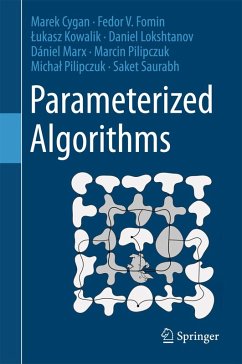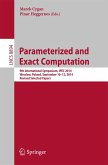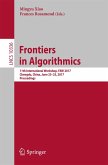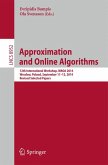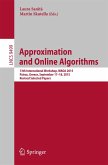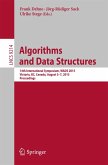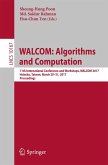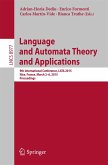The book provides a toolbox of algorithmic techniques. Part I is an overview of basic techniques, each chapter discussing a certain algorithmic paradigm. The material covered in this part can be used for an introductory course on fixed-parameter tractability. Part II discusses more advanced and specialized algorithmic ideas, bringing the reader to the cutting edge of current research. Part III presents complexity results and lower bounds, giving negative evidence by way of W[1]-hardness, the Exponential Time Hypothesis, and kernelization lower bounds.
All the results and concepts are introduced at a level accessible to graduate students and advanced undergraduate students. Every chapter is accompanied by exercises, many with hints, while the bibliographic notes point to original publications and related work.
Dieser Download kann aus rechtlichen Gründen nur mit Rechnungsadresse in A, B, BG, CY, CZ, D, DK, EW, E, FIN, F, GR, HR, H, IRL, I, LT, L, LR, M, NL, PL, P, R, S, SLO, SK ausgeliefert werden.
"The style of the book is clear, and the material is well positioned to be accessible by graduate students and advanced undergraduate students. The exercises and hints provide a good ground for self-study, while bibliographic notes point to original papers and related work. Overall, this is an excellent book that can be useful to graduate and advanced undergraduate students either as a self-study text or aspart of a course." (Alexander Tzanov, Computing Reviews, February, 2016)
"This is the most recent and most up-to-date textbook on parameterized algorithms, one of the major thrusts in algorithmics in recent years. ... this new textbook has more than twice as many pages shows the development of the field. ... This book does a very good job at balancing the necessary mathematical rigour with a nice presentation of the results." (Henning Fernau, Mathematical Reviews, February, 2016)
"This book serves as an introduction to the field of parameterized algorithms and complexity accessible to graduate students and advanced undergraduate students. It contains a clean and coherent account of some of the most recent tools and techniques in the area." (Paulo Mbunga, zbMATH 1334.90001, 2016)

